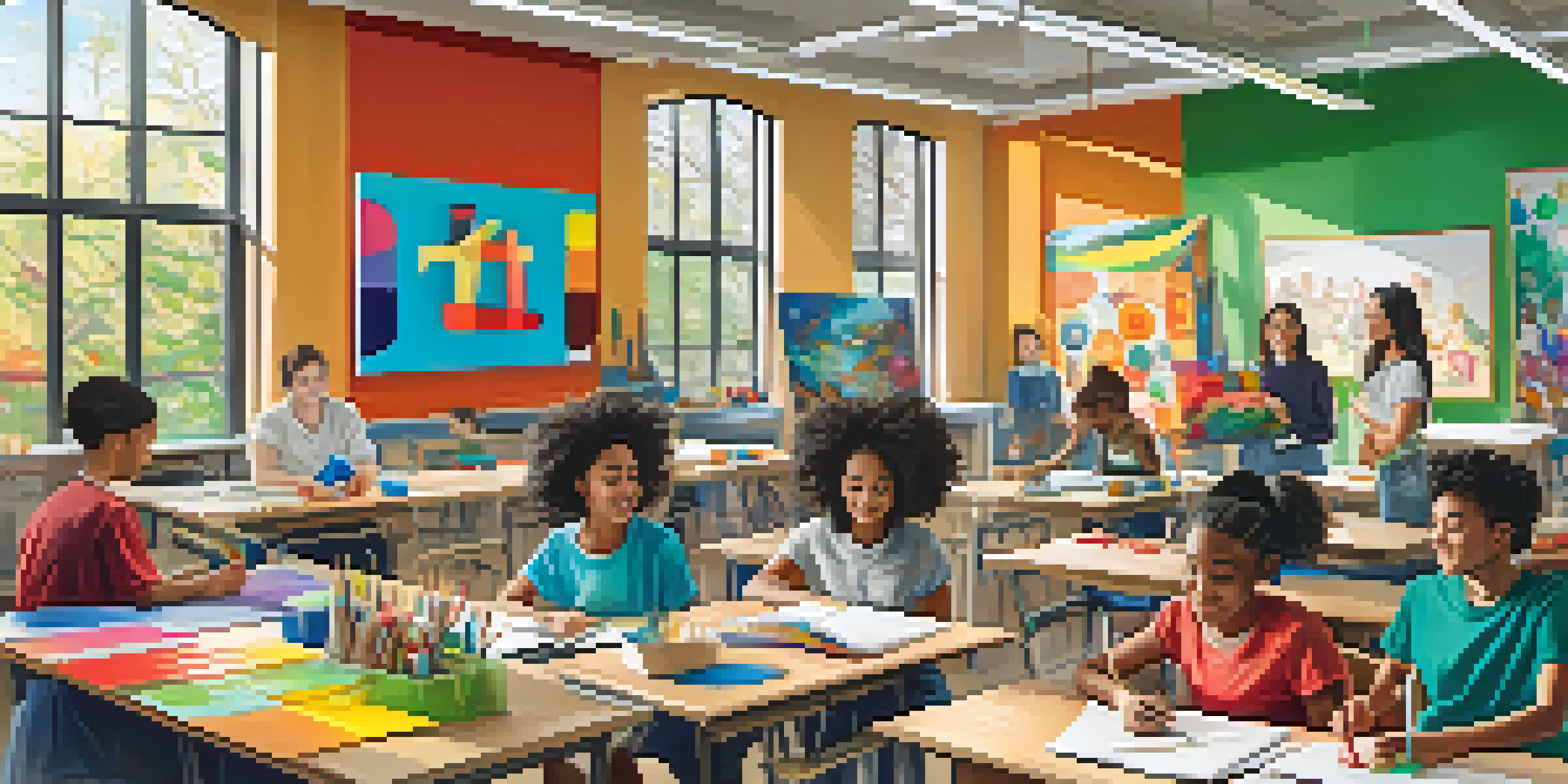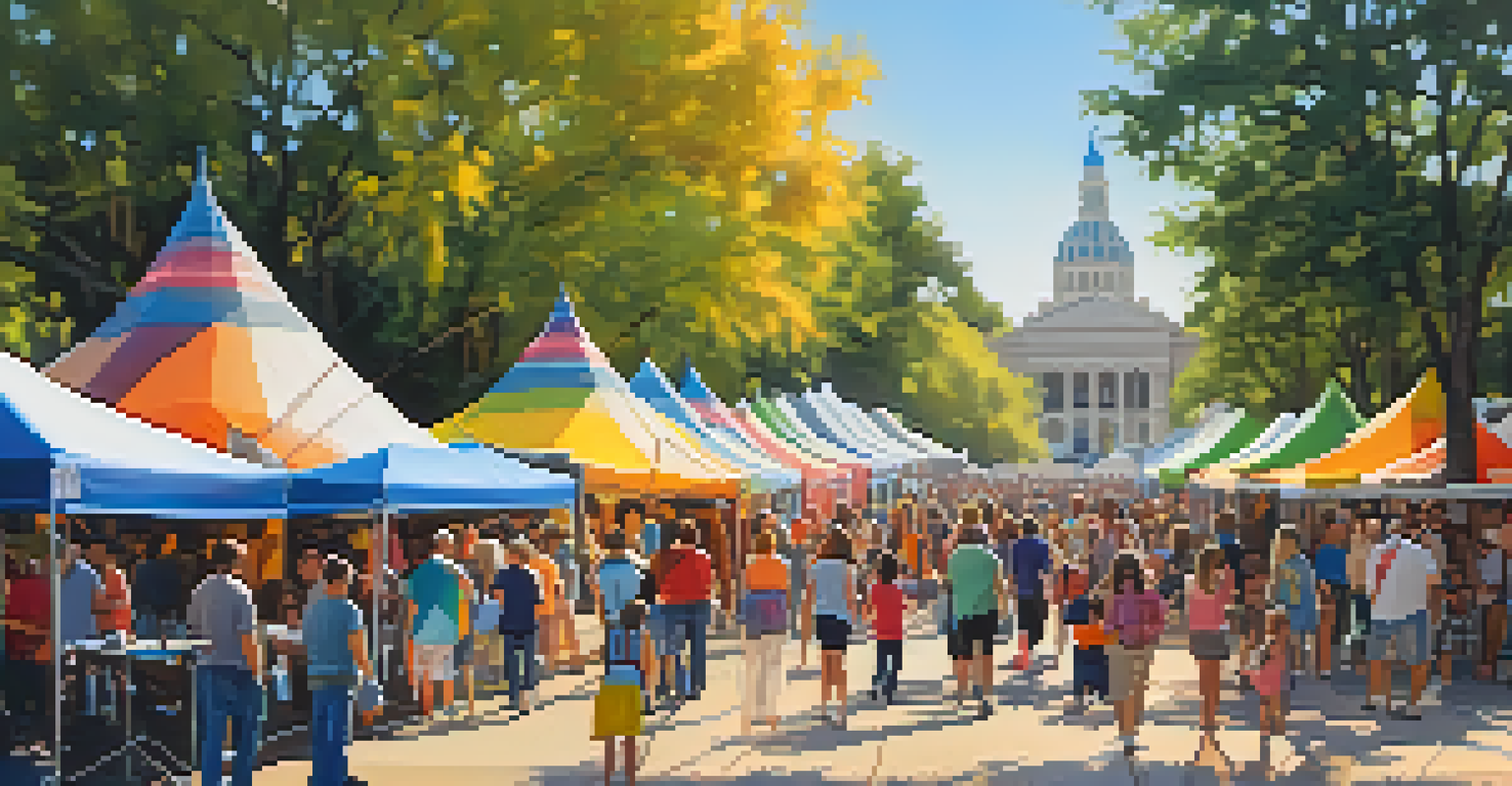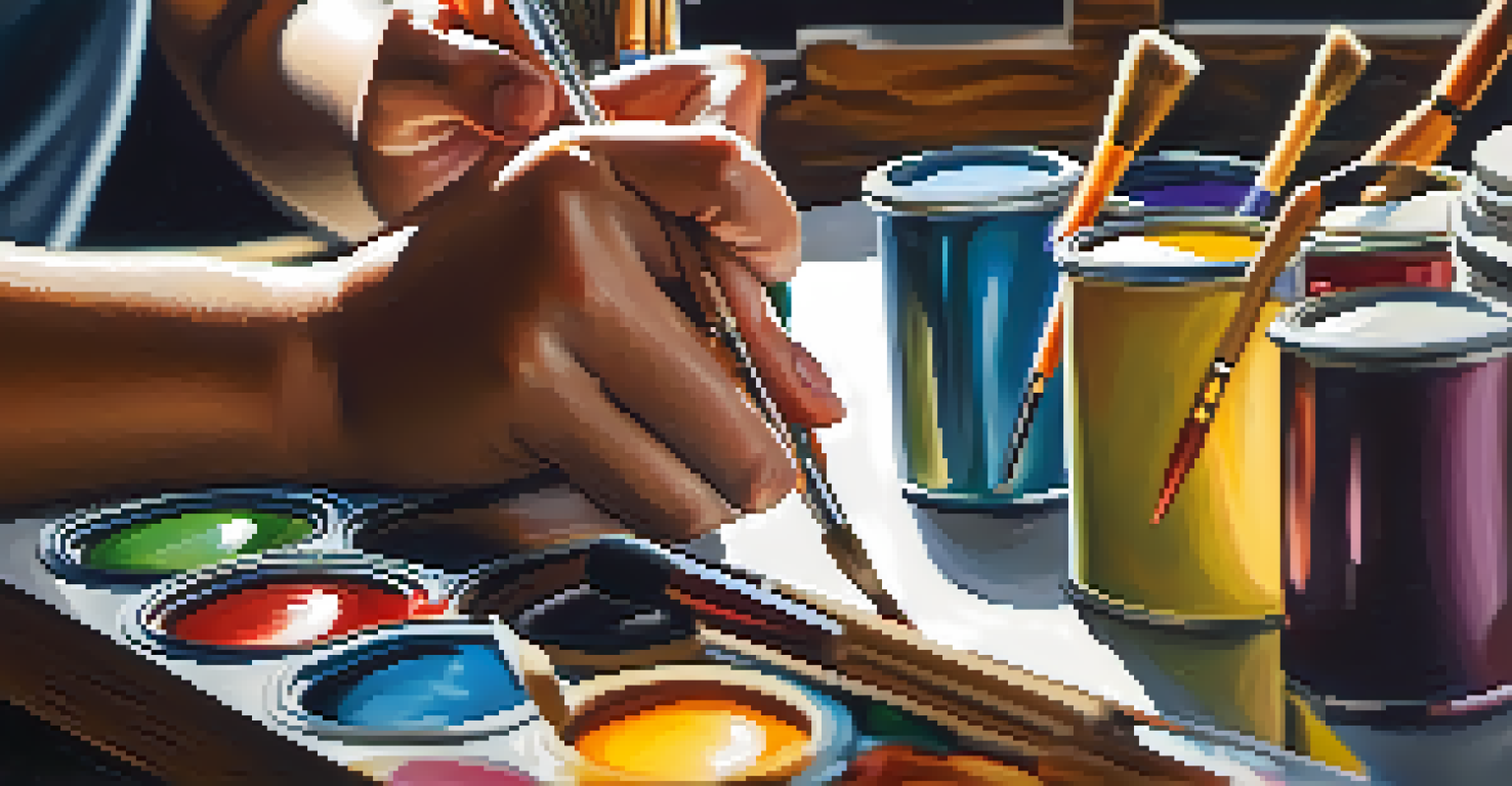Local Nonprofits Enhancing Arts Education Opportunities in Dallas

The Importance of Arts Education in Dallas
Arts education plays a vital role in fostering creativity and critical thinking among students. In Dallas, where cultural diversity thrives, exposing young minds to various art forms can enhance their educational experience. Research shows that students engaged in the arts tend to perform better academically and socially, making arts education essential for holistic development.
Art is not a thing; it is a way.
Local nonprofits are stepping up to fill the gaps in arts education, often left by budget constraints in schools. By offering programs that focus on visual arts, music, and theater, these organizations ensure that children from all backgrounds have access to creative outlets. This is particularly important in underserved communities, where opportunities for artistic expression may be limited.
Furthermore, arts education encourages collaboration and teamwork, essential skills in today's workforce. Nonprofits in Dallas recognize that by nurturing these skills through art, they are not only enriching lives but also preparing students for future success in any field they choose.
Leading Nonprofits Making a Difference
Several nonprofits in Dallas are at the forefront of enhancing arts education, each with a unique approach. Organizations like Big Thought and the Dallas Arts District are dedicated to transforming educational experiences through the arts. They offer workshops, after-school programs, and summer camps that engage students in creative learning.

Big Thought, for instance, focuses on integrating arts into the curriculum, fostering a mindset that values creativity alongside academic achievement. Their programs cater to various age groups and skill levels, ensuring that every child can find their artistic voice. This hands-on approach not only improves artistic skills but also boosts confidence among young participants.
Arts Education Boosts Student Success
Engaging in arts education enhances students' academic performance and social skills, contributing to their overall development.
The Dallas Arts District, meanwhile, collaborates with local schools to provide access to professional artists and performances. By bringing artists into classrooms and offering field trips to galleries and theaters, they create immersive experiences that inspire students. These interactions can spark a lifelong passion for the arts and encourage students to pursue their creative interests further.
Creative Partnerships for Arts Education
Collaboration is key when it comes to enhancing arts education, and many Dallas nonprofits are forming creative partnerships. By joining forces with local schools, businesses, and community organizations, they expand their reach and impact. These alliances make it possible to pool resources and expertise, ultimately benefiting students.
Every child is an artist. The problem is how to remain an artist once we grow up.
For example, some nonprofits partner with local artists to deliver workshops directly in schools. This not only enriches the curriculum but also provides students with mentorship opportunities from professionals in the field. Such interactions can be incredibly motivating, as students see firsthand the possibilities within the arts.
Moreover, these partnerships often lead to community events and performances that showcase student talent. These events not only celebrate the hard work of young artists but also foster a sense of community pride and support for arts education initiatives.
Impact of Arts Education on Youth Development
The impact of arts education on youth development goes beyond the classroom. Engaging in creative activities helps children develop essential life skills such as problem-solving, empathy, and resilience. These skills are invaluable as students navigate their educational journeys and prepare for adulthood.
Research consistently shows that students involved in arts programs exhibit higher levels of self-esteem and motivation. This is particularly important for at-risk youth, who may face additional challenges in their lives. By providing a safe space for expression, nonprofits foster an environment where young people can thrive.
Local Nonprofits Drive Arts Access
Nonprofits in Dallas are filling the gaps in arts education by providing programs that ensure all children have access to creative opportunities.
Additionally, involvement in the arts can lead to improved mental health outcomes. By offering an outlet for emotions and a way to process experiences, arts education serves as a powerful tool for personal development and well-being.
Accessibility and Inclusivity in Arts Programs
One of the key focuses of nonprofits enhancing arts education in Dallas is ensuring accessibility and inclusivity. Many organizations work hard to remove barriers that prevent children from participating in arts programs. This includes providing scholarships, free workshops, and transportation assistance to underserved communities.
By prioritizing inclusivity, these nonprofits create environments where all students feel welcome and valued. This diversity enriches artistic expression and fosters a culture of collaboration and understanding among participants. When children from different backgrounds come together, they learn from each other, broadening their perspectives.
Moreover, these efforts aim to reflect the rich cultural tapestry of Dallas in the arts programs offered. By incorporating various cultural influences into their curriculum, nonprofits help students appreciate the beauty of diversity and the importance of representation in the arts.
Success Stories from Dallas Nonprofits
The success of nonprofits enhancing arts education in Dallas can be seen through numerous inspiring stories. Many students have gone on to pursue careers in the arts, thanks to the foundational skills and confidence gained through these programs. These success stories serve as a testament to the transformative power of arts education.
For instance, some students have received scholarships to prestigious art schools, while others have showcased their work in local galleries. These achievements not only highlight individual talent but also demonstrate the effectiveness of nonprofit initiatives in nurturing the next generation of artists.
Collaboration Enhances Creative Learning
Partnerships between nonprofits, schools, and local artists foster enriched arts programs that benefit students and the community.
Moreover, alumni often return to inspire current students, creating a cycle of mentorship and encouragement. This sense of community fosters a supportive network that continues to uplift young artists long after they’ve graduated from the program.
The Future of Arts Education in Dallas
Looking ahead, the future of arts education in Dallas appears promising, thanks in large part to the dedication of local nonprofits. As these organizations continue to grow and innovate, they are finding new ways to engage students and adapt to changing needs. This proactive approach ensures that arts education remains relevant and impactful.
Additionally, the increasing recognition of the importance of the arts in education is encouraging more community support. With more funding and resources being allocated towards arts programs, nonprofits can expand their offerings and reach even more students. This momentum is vital for sustaining and enhancing arts education in the long term.

Ultimately, the commitment of nonprofits to arts education in Dallas is shaping a brighter future for young artists. By fostering creativity and self-expression, they are not only enriching lives but also cultivating a generation that values the arts and its role in society.